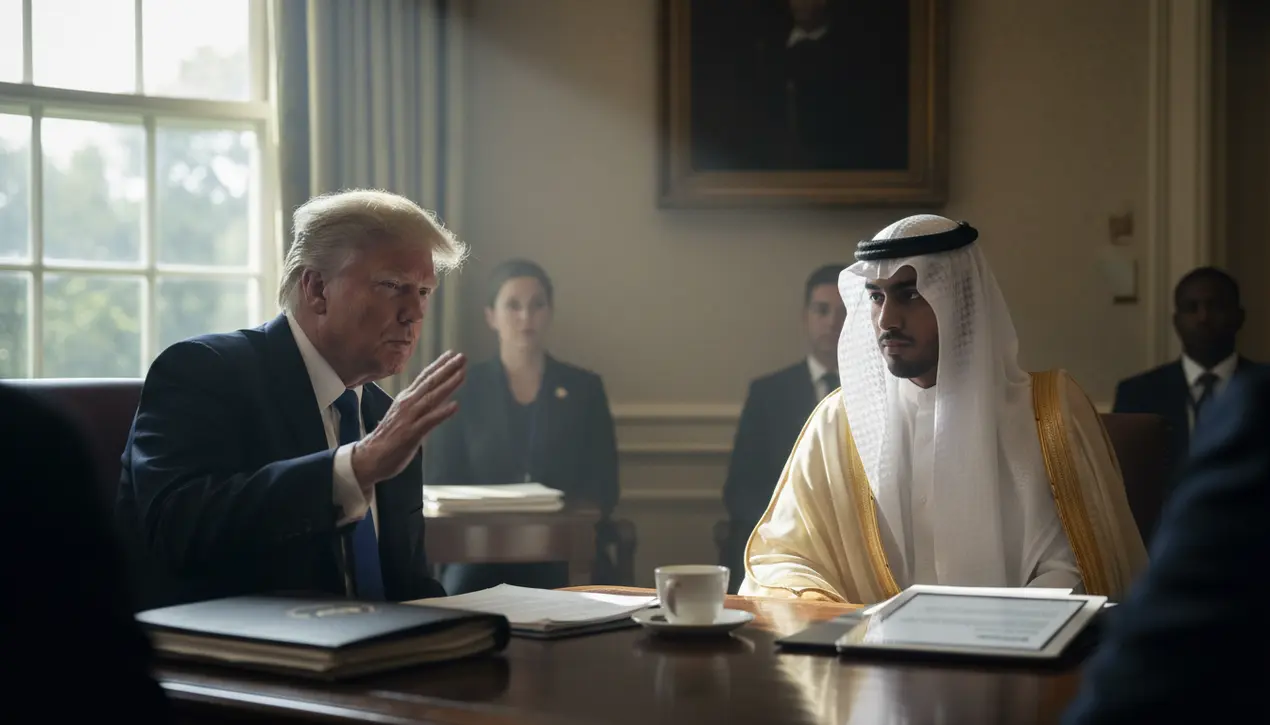
PoliticsdiplomacyBilateral Relations
Strategic Necessity Trumps Scandal in the Enduring US-Saudi Alliance
RO
Robert Hayes
3 hours ago7 min read
The recent diplomatic engagement between the United States and Saudi Arabia underscores a persistent geopolitical truth: strategic imperatives consistently outweigh human rights and political scandals in this decades-old partnership. The relationship, a pragmatic alliance forged on oil and mutual security interests, has proven resilient to the pressures of democratic accountability.This dynamic was on full display as past and present U. S.administrations, despite campaign rhetoric, have consistently returned to the negotiating table with Riyadh, prioritizing national interest over moral condemnation. The foundation of this alliance, established in 1945 between Franklin D.Roosevelt and King Abdulaziz Ibn Saud, continues to shape modern diplomacy. The current rapport is deeply transactional, evidenced by recent announcements of massive proposed Saudi investments in the U.S. and advanced American weapons sales, including F-35 fighter jets and a potential 'major non-NATO ally' status for the Kingdom.This status would significantly ease Saudi Arabia's ability to purchase advanced U. S.weaponry, though it stops short of the formal, Congress-ratified defense treaty that remains a key Saudi objective. However, the alliance is not without its limits and underlying tensions.Saudi Arabia has demonstrated its own agency, notably by resisting pressure to immediately join the Abraham Accords without a credible pathway to a Palestinian state. This stance reflects the Kingdom's need to manage domestic and regional opinion, particularly in the wake of the war in Gaza.Furthermore, lingering doubts about the reliability of U. S.security guarantees, fueled by memories of a tepid American response to a 2019 Iranian missile attack on Saudi oil facilities, are driving Riyadh to diversify its partnerships. Saudi Arabia is actively hedging its bets by cultivating deeper economic ties with China and signing new defense pacts with nations like nuclear-armed Pakistan.While the U. S.-Saudi relationship remains 'too big to fail' in the near term, bound by energy, arms, and a shared adversary in Iran, a larger question looms. As Saudi Arabia aggressively pursues its own modernization and strategic goals under Vision 2030, it is increasingly assessing whether its partnership with a politically volatile United States is an indispensable anchor or merely one option in an emerging multipolar world order.
#US-Saudi relations
#Donald Trump
#Mohammed bin Salman
#Khashoggi
#arms deals
#normalization
#featured
Stay Informed. Act Smarter.
Get weekly highlights, major headlines, and expert insights — then put your knowledge to work in our live prediction markets.
Related News
Comments
Loading comments...
© 2025 Outpoll Service LTD. All rights reserved.